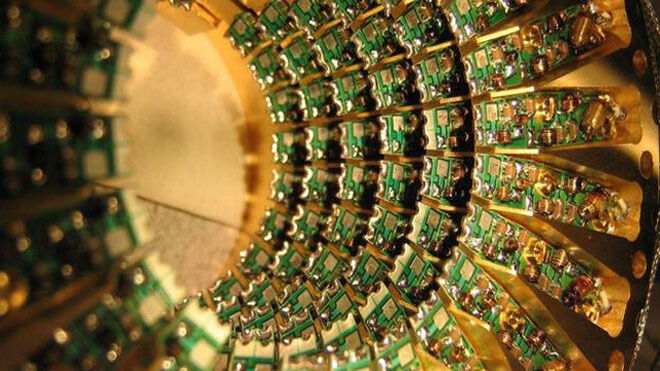- Get link
- X
- Other Apps
- Get link
- X
- Other Apps

Even if the word "quantum" does not scare you, quantum computers are still rather bizarre concepts of science fiction, rather than reality. However, recent advances in this area suggest that these insanely fast computers may appear earlier than we think. And we have many reasons to worry about their arrival.
Ray Johnson, a member of the board of directors of QxBranch's startup of quantum computing, one of the many companies that are working on moving quantum computers from laboratories to the real world, talked about these reasons in an interview with Business Insider.
The temptation of quantum computers is their ability to solve almost insoluble problems - these are so complex problems that it would take decades for modern computers to solve them. In theory, a quantum computer can solve these issues while you are drinking morning coffee.
Unsolvable problems
Conventional computers that we use every day use "bits" to store information - 1 and 0 - and lines from these zeros and ones representing a particular digit or letter.
In contrast, quantum computers take advantage of rather strange physical phenomena when tiny particles can exist in several places simultaneously. Instead of using bits that have only two "settings", they use quantum bits, or "qubits", which have an additional setting: they can be 1 or 0, or 1 and 0 at the same time.
Thus, a conventional two-bit computer can encode information in only four possible combinations: 00, 01, 10, 11. A quantum computer can receive all of these four combinations simultaneously. This allows him to process exponentially more information than ordinary computers can.
Another way to think about the difference between conventional and quantum computers is to think about the version of the famous traveling salesman problem in mathematics. In this task, you are the traveling salesman planning a trip, and you want to find out which route through 10 different cities will be the cheapest (economical) and fastest.
A typical computer will have to calculate the length of all these routes separately, and then compare the results by determining the winner. A quantum computer can calculate the lengths of all the routes simultaneously, since the qubits can process a lot of information simultaneously - and hence find a solution faster.
Quantum differences
There are several obstacles to the spread of quantum computers around the world.
At present, these computers should be stored in supercooled conditions and even slight anxiety will lead to the collapse of their delicate state. Nevertheless, thanks to a serious breakthrough by Google in March, engineers figured out how to make quantum computers more stable - some even started talking that we are halfway to fully functional quantum computers. Google, NASA and IBM are working hard to implement this venture.
And when we finally reach this point, quantum computers will be able to revolutionize virtually any industry.
Johnson, a former CTO of Lockheed Martin, explained that the computers that we now have are doing well what people do badly. For example, people can not remember 10 million numbers, arrange them in a table, and then quickly make calculations with these numbers. But computers do this.

A quantum computer can not do this faster than any conventional computer. There is no better or faster way to perform calculations with a set of numbers. However, quantum computers can narrow the gap between what computers are doing well and what people are doing well.
People make their way through complex installations and choose the right things from these arrays. Our brains do this quite naturally and with much less cost than a computer can. Quantum computers, however, will work more like a human brain.
The fact is that, like humans, quantum computers can be trained with experience. For example, if a quantum computer is running a program that does not do a good job with a particular task, it can make changes to the code of this program independently and save it from committing errors in the future.
This concept is called machine learning. It is similar to how your mail service is learning, which letters to send to spam, and which are not, only more ingenious. The machine learning of quantum computers will allow us to do many things faster and with greater efficiency.
Quantum Applications
For example, quantum computers can significantly improve aerospace, military and defense systems. With all the satellites that we have, we constantly collect tons of images and videos. Most of this data is not viewed by anyone, since it is difficult to understand. Including because modern computers do not very well recognize and allocate the necessary data from the collected series.
Quantum computers can sort giant amounts of data faster and more accurately than people who need to view snapshots and videos to understand their meaning.
The same ability of quantum computers can lead us to safe transport. Quantum computers can form the basis of semiautomatic cars (not as interesting as self-managed Google cars, but still) that can warn us about a possible collision and make some decisions on their own while driving.
We do not yet know even one percent of the possibilities of quantum computers and the associated changes. Johnson believes that we will see more breakthroughs in the coming years and very important changes in five years.
A quantum computer in every home - this plan is quite long-term. But the key point is to create a simple interface that everyone can use. This is what QxBranch is working on. However, industrial and commercial applications of quantum computers do not seem so long-term.
The article is based on materials .
- Get link
- X
- Other Apps
Comments
Post a Comment